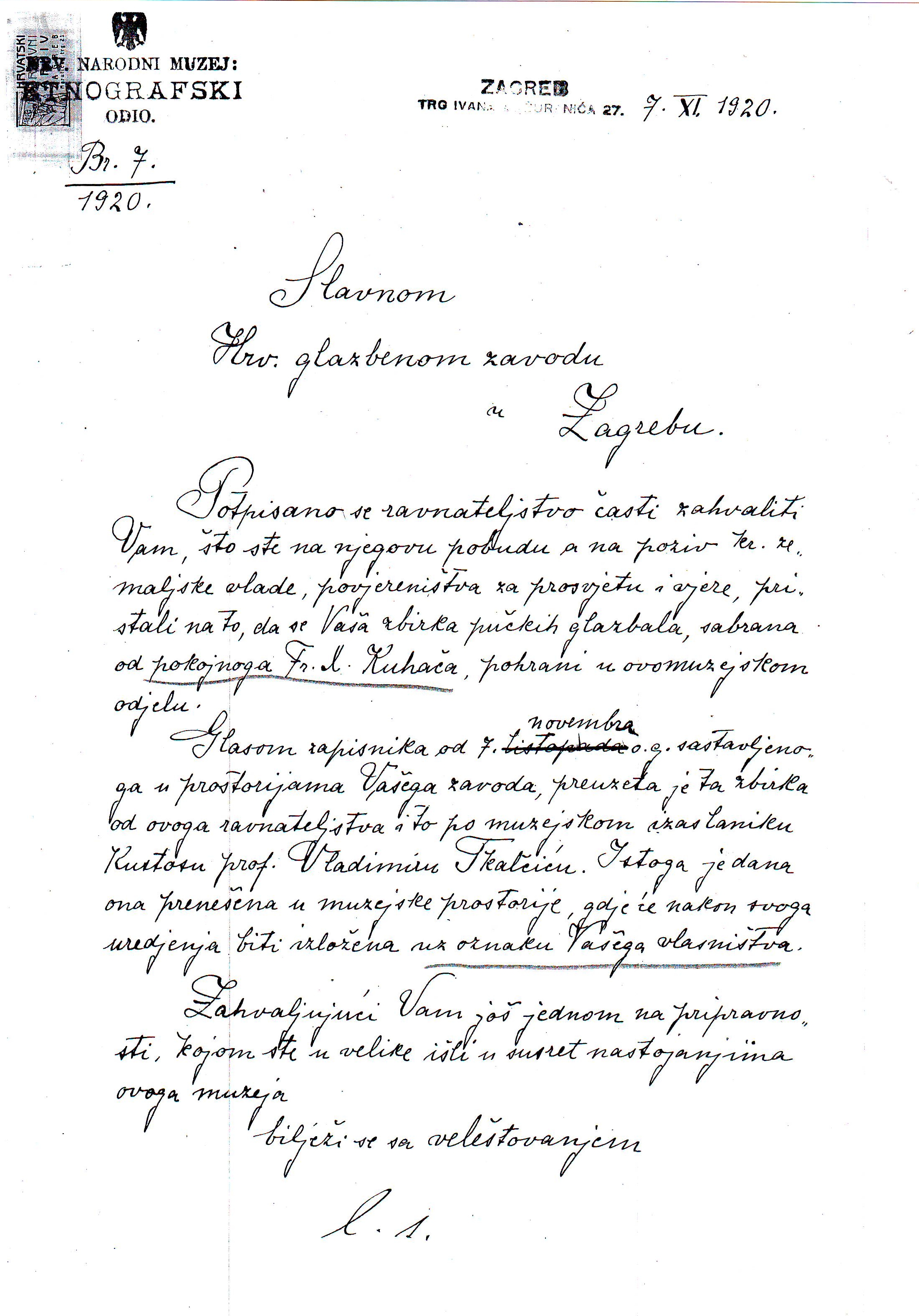Franjo Ksaver Kuhač was born in 1834 in Osijek to a German family and was named Franz Xaver Koch. Kuhač’s attachment to folk music was awakened by the Croatian National Revival rapture, which permeated cultural life of Osijek in the early 1840s, marked by the Illyrian movement endeavours. Apart from his family’s friendly ties to a number of prominent members of the National Revival, Kuhač also graduated from secondary school governed by Franciscan friars, folk music admirers, “…thus he was brought up, as he would often point out himself, in the sphere of Croatian music” (Marošević, 2009: 235). He proved his deep and pronounced Croatian national sentiment by changing the German name Koch to Kuhač (ibid.).
Endorsing the Illiryan idea of South Slavic unity, Kuhač encompassed all South Slavic countries in his field research – wherein he, among other things, collected musical instruments for his private collection. He used to record both older and newer traditional music in the field; he would even note the newest popular music if it contained any national traits. He believed that precisely living folklore music, both ‘folk’ (rural) and ‘urban’, provided the best basis for creating the national music, which was supposed to be contemporary music and not music of the past (Marošević, 2009).
 Document about entrusting the Collection of musical instruments by Franjo Ksaver Kuhač to the Ethnographic Museum, 1920
Document about entrusting the Collection of musical instruments by Franjo Ksaver Kuhač to the Ethnographic Museum, 1920
As already mentioned, during the course of his filed research, between 1857 and 1886, Franjo Ksaver Kuhač gathered fifty-six musical instruments, which was entrusted for permanent storage to the Ethnographic Museum. Kuhač first sold his collection of musical instruments to the Croatian Music Institute on the basis of the purchase contract from 16th March, 1886. As stated in a document from the Croatian Music Institute archives (Archives I – 20/1886), apart from “The List of Musical Instruments in Kuhač’s Collection”, Franjo Kuhač submitted an offer to sell the same collection for the sum of 100 forint. The Croatian Music Institute purchased the collection for the required sum and it was received and registered by Johann Oertl on 23rd March, 1886.
The Collection had been stored in the Croatian Music Institute in Zagreb for thirty-four years, and was eventually entrusted for storage to Ethnographic Museum on 7th November, 1920, where it is still kept (Archives HGZ I-7/1920; see Galin 1984b: 12). Franjo Ksaver Kuhač has died in 1911 in Zagreb.
The musical instruments that Kuhač collected carry great importance, not only due to the fact that they are the oldest exhibits preserved up to date, some being over 250 years old, but because some of the items indicate the continuity of musical traditions in certain areas.
See more:
Hrvatski glazbeni zavod - Zbirka glazbala Franje Ksavera Kuhača